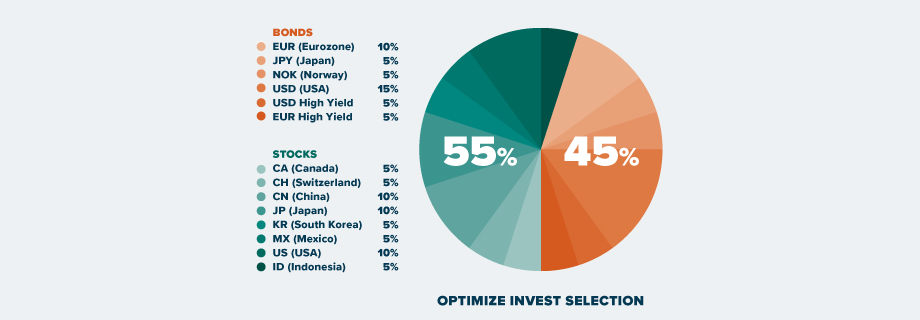The most dynamic economic growth is found in India, which was previously the most populous country on the planet with around 1.42 billion residents. This is a particularly tempting cocktail that makes it one of the preferred destinations for investors.
The Indian stock exchange is paying an exorbitant price due to this craze. Our preference is to wait for a more favorable window of opportunity before establishing ourselves in this market, as the dynamic that has provided it with support so far is not always the most healthy. Explanations.
Modi regained his position, but with a narrow majority
Prime Minister Narendra Modi remains in business in India. Even so, he has lost an absolute majority. In order to remain in charge of the state for a third term, he will have to make concessions if he has not encountered any problems in finding partners. Therefore, some of the promised reforms may be delayed. Among them, a greater uniformity of labour laws between the different states that make up this huge country, but also the simplification of real estate purchase (especially for land), the privatization of certain sectors of the economy, and improving governance. Creating a new consensus to achieve concrete progress won't necessarily come easily for a Prime Minister who is accustomed to governing without sharing.
Players who dominate their domestic market
India’s immense potential is not new. For a good decade and the reforms promoted by Prime Minister Manmohan Singh in the early 2010s, the country combines a very favorable demography (which makes it a market of a rare size) with an increasingly prepared workforce, which has enabled it to develop and diversify in sectors as varied as information technology or pharmaceutical production.
Nevertheless, the real trigger of Indian action has only occurred in recent years. The Indian stock exchange's gain of nearly 40% over one year (price + dividends, in €) is a result of several factors, including the sharp rise in profits of companies listed in Mumbai.
Among them, there is the reduction of the tax burden on companies, which made them more lucrative, the moratorium on the debt of some major players by the state banks (which allowed them to stay afloat), subsidies to production, and import barriers that have protected the local industry from international competition.
The Mumbai stock exchange valuation is not justified by the profits and dividends generated by listed companies, despite this favorable situation. During this third term, there will be reforms that are promised to improve the business climate for these large groups and allow them to keep this huge market for themselves.
On the other hand, opening the economy and free trade – whether with Asian, European or other partners – is not a priority for Narendra Modi, even if he wants to attract major players, such as Tesla, to the country.
A difficult opening to negotiate
India is therefore in a special situation: There is no doubt that greater openness to foreign investment and greater integration of the country in world trade (including through free trade agreements), would enable it to fulfil its full potential and achieve even higher growth rates. This increased competition would also benefit the Indian consumer, who is disappointed not to benefit from the fruits of growth. If Modi has lost his absolute majority, it is because a growing number of his fellow citizens feel that they have not benefited from the growth and on the contrary, see the soaring prices erode his purchasing power. Even though there has been a period of strong growth, the unemployment rate is still rising at around 8%, and more than 80% of the country's unemployed are young, which is a huge mess. In addition, the saving rate of Indian households is at its lowest in almost five decades, around 5% of GDP. And poverty in savings means the need for foreign capital to finance the country’s much-needed investment.

To rectify this situation and enhance its competitiveness and growth potential, the Indian economy should become more open. The capital needed for the country's development would also be provided by it.
On the other hand, it will not be without breaks: If the major economic groups that dominate India to date were to face international competition, there is a good chance that some of them will not hold out and that their stock market price will suffer, with a possible contagion to the entire market. Highly oriented towards its domestic market, which benefits from a good dynamic and therefore poorly correlated with the other major stock markets of the planet, the Indian stock exchange has a priori beautiful asset to constitute a diversification of choice.
It is still a long way off being given. The MSCI India index is trading at 26x earnings (compared to 16x on average for emerging countries), and it is stingy in dividends (1.04% against 2.78%). Only companies with high quality that are evolving into the best of everything would be able to justify such levels of valuation. While India's economic prospects are good, the country's major economic groups still operate in a market where foreign competition is not largely present. Despite this, the profits and dividends given are not sufficient to justify the current level of valuation.
The introduction of new players - necessary for the country to finally fulfill its enormous potential - is likely to not improve these ratios.
We therefore prefer to wait for a more favourable window of opportunity before entering this market.
